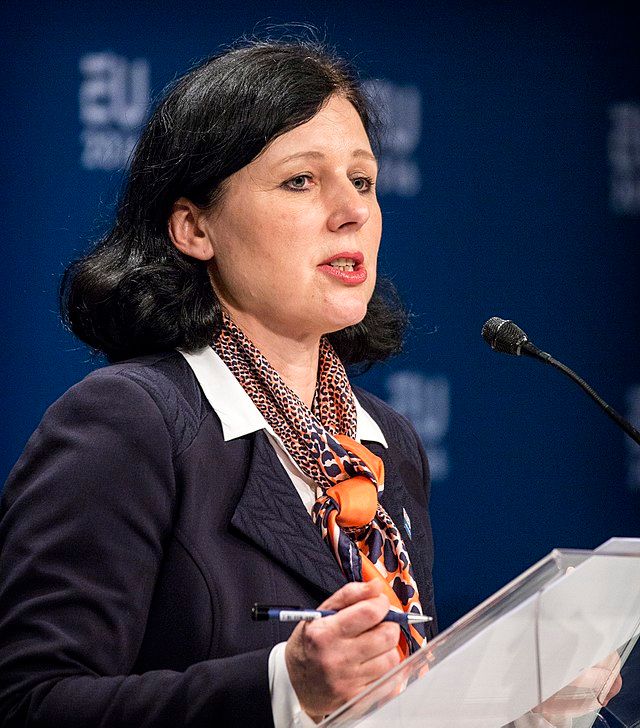EU Regulator Calls for AI Content Labels
EU Commission VP Vera Jourova on Monday urged tech companies like Meta and Google to ramp up their fight against disinformation by adding labels to text, photos, and other content generated by artificial intelligence (AI).

Facts
- EU Commission VP Vera Jourova on Monday urged tech companies like Meta and Google to ramp up their fight against disinformation by adding labels to text, photos, and other content generated by artificial intelligence (AI). She also asked the companies, including TikTok and Microsoft, to sign onto the voluntary anti-disinformation agreement.1
- Jourova said the aim is to protect free speech, but added that "when it comes to AI, "[she doesn't] see any right for the machines to have the freedom of speech." The EU has taken the global lead in AI regulation, though its proposed AI Act still needs final approval and won't take effect for years.2
- She said that to combat the "dark side" of AI, such safety measures should make it so users can "clearly see" when content is AI-generated and be labeled with words such as "this is the robot talking."3
- The companies have been asked to report their implemented safeguards in July. Meanwhile, Twitter has opted out of the agreement, to which Jourova said, "its actions and compliance with EU law will be scrutinized vigorously and urgently."4
- The EU will begin its scrutiny of Twitter next month when EU Commissioner Thierry Breton heads to its San Francisco headquarters to conduct a "stress test" to measure the platform's ability to comply with the Digital Services Act (DSA).2
- As the DSA is set to take effect on Aug. 25, with violators facing fines of up to 6% of revenue or bans across the bloc, the EU is also asking 44 companies that have signed onto the voluntary agreement to invest more in combatting alleged Russian disinformation and fact checking minority Russian language content in Eastern Europe.3
Sources: 1ABC News, 2Techxplore, 3Guardian, and 4Reuters.
Narratives
- Pro-establishment narrative, as provided by European Commission. The world is facing an unprecedented war of ideas and information, and the tech platforms on the front lines of this fight must take more action. Not only is Russia using existing digital platforms to undermine Western security, it now has its hands on the ever-powerful generative AI. The developers of this technology have signed up to voluntarily crack down on harmful content, but they must now push full steam ahead to ensure their emerging platforms aren't abused by the Kremlin or other global bad actors.
- Establishment-critical narrative, as provided by Reason. As the EU ramps up its regulatory threats against tech companies, it's important to note what so-called disinformation they plan to crack down on. One of the Code of Practice's partners is the US State Dept.-funded Global Disinformation Index, which deems the New York Post, Real Clear Politics, The Daily Wire, The Blaze, and The Federalist, among others, as 'purveyors' of disinformation. This isn't about protecting digital freedoms or Ukraine, but rather crushing dissenting opinions.






